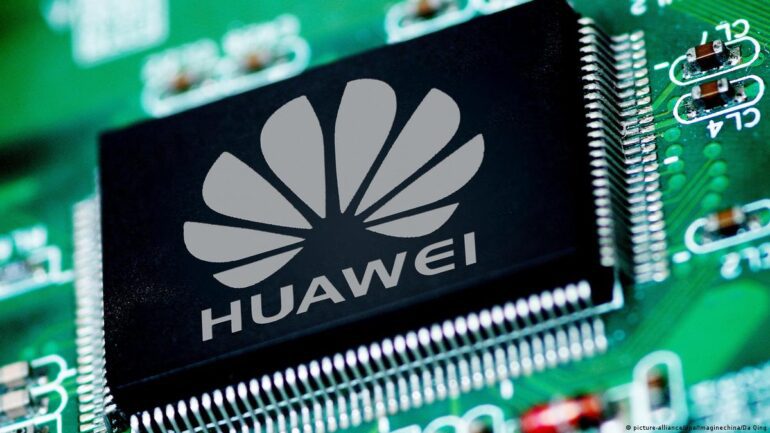TL;DR:
- Huawei has announced a strategic shift, focusing on artificial intelligence (AI) for the next decade.
- This marks a significant departure from its previous emphasis on cloud computing and intellectual property.
- Meng Wanzhou, Huawei’s rotating chairwoman, champions the “All Intelligence” strategy.
- The company aims to bolster AI computing infrastructure globally.
- Huawei’s move follows similar shifts by Alibaba and others towards prioritizing AI.
- Meng Wanzhou’s return after legal battles reinforces Huawei’s leadership stability.
- Simultaneously, China alleges that the US infiltrated Huawei servers years ago, intensifying international tensions.
- Huawei’s launch of the Mate 60 Pro, featuring a 5G chip, prompts a US investigation.
Main AI News:
In a strategic pivot that has sent shockwaves through the tech industry, Huawei, the Chinese telecommunications titan, has unveiled its ambitious plan to embark on a decade-long journey dedicated to the realm of artificial intelligence. This landmark shift in focus marks the first time in approximately ten years that Huawei has recalibrated its strategic direction, with prior decades dedicated to cloud computing and intellectual property.
Meng Wanzhou, Huawei’s dynamic rotating chairwoman and chief financial officer, unveiled this strategic metamorphosis during a grand announcement in Shanghai, leaving industry observers and competitors in awe. Huawei, a global tech giant, is now setting its sights firmly on the promising horizon of AI.
In an official statement, Huawei emphasized its commitment to the new frontier, stating, “As artificial intelligence gains steam and its impact on industry continues to grow, Huawei’s All Intelligence strategy is designed to help all industries make the most of new strategic opportunities.”
Meng Wanzhou, in her eloquent speech, declared Huawei’s resolute mission to “build a solid computing backbone for China — and another option for the world,” further highlighting the company’s dedication to advancing the global AI ecosystem. While details remain under wraps, Meng hinted at Huawei’s overarching goal of catering to the diverse AI computing needs of various industries.
Huawei’s visionary decision to plunge headfirst into AI aligns with a broader trend in the tech world. Fellow Chinese tech giant Alibaba recently made a similar announcement, prioritizing AI in its strategic endeavors. The allure of AI’s transformative power has also beckoned other industry players, including Japan’s SoftBank, all eager to ride the wave of excitement surrounding platforms like GPT-4.
Meng Wanzhou’s return to China in September 2021, after nearly three years of house arrest in Canada due to an extradition battle with the United States, underscores the resilience and determination of Huawei’s leadership. Charges of alleged bank fraud and evasion of economic sanctions against Iran were eventually dismissed after an agreement with the US Department of Justice. Meng now serves as the rotating chairperson of the company, a position she is expected to hold for six months.
However, the announcement of Huawei’s strategic shift coincided with allegations against the United States by China’s Ministry of State Security. The ministry claimed that the United States had infiltrated Huawei servers nearly 15 years ago, engaging in cyberattacks, espionage, and data theft against numerous countries, including China. Notably, the ministry singled out the US National Security Agency (NSA) for its systematic and platform-based attacks.
Huawei refrained from commenting on these allegations, while the NSA had no immediate response. These allegations are significant, given long-standing suspicions that Huawei’s technology may be utilized for espionage, leading to trade restrictions imposed by the US. Huawei has consistently denied any collusion with the Chinese government.
In 2019, Huawei was placed on the US “entity list,” limiting exports to specific organizations without US government approval. The following year, the US further tightened restrictions by targeting Huawei’s chip suppliers that utilized US technology.
Recent tensions between the US and China were exacerbated when Huawei launched its Mate 60 Pro, a cutting-edge smartphone that appeared to incorporate a 5G chip, potentially sidestepping American export controls. This move has intensified the ongoing tech rivalry between these global giants.
Conclusion:
Huawei’s strategic pivot towards artificial intelligence signifies a substantial shift in the tech industry. This move, in alignment with other major players like Alibaba and SoftBank, underscores the growing significance of AI. However, allegations of espionage and escalating tensions with the US add complexity to Huawei’s path forward. As the company embraces AI, its actions will undoubtedly influence the global tech landscape, with potential repercussions for the market and geopolitical dynamics.

